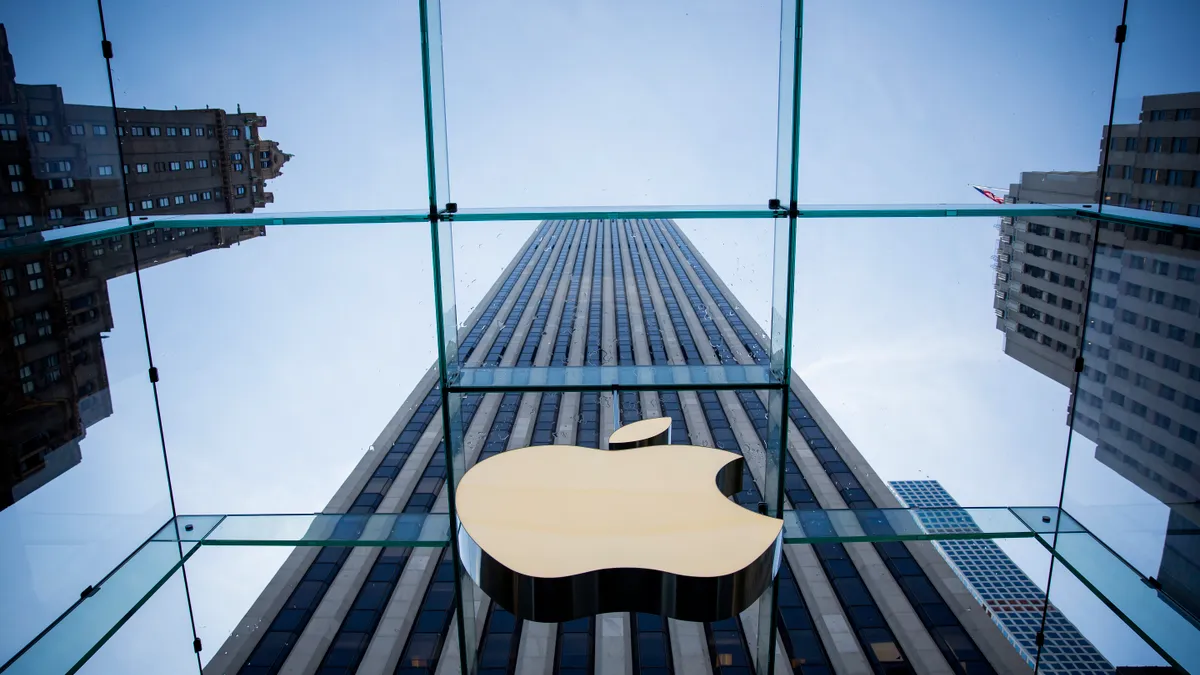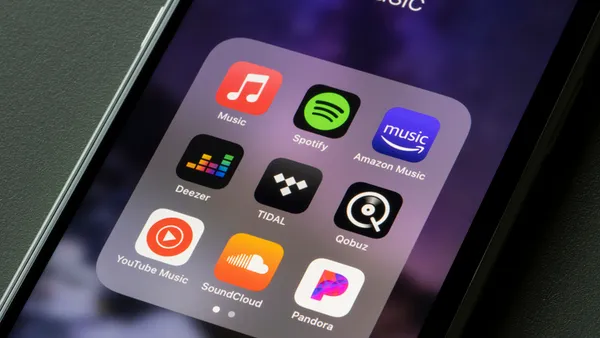Dive Brief:
- Apple's services segment, which includes advertising, grew 24% year-on-year to a record $19.5 billion for the fiscal first quarter ended Dec. 25, per a financial statement. Overall company revenue hit an all-time high, up 11% YoY to $123.9 billion.
- Services, which also encompass payments, music, cloud-based technology and the streamer Apple+, continued to net new customers while existing ones engaged more with those platforms over the period, executives said when discussing the results with analysts. Apple now wields more than 785 million paid subscriptions across its portfolio after adding 165 million new users over the last 12 months.
- Advertising remains a comparatively small part of Apple's business, but the iPhone maker has steadily built out infrastructure on this front at a time when its policy changes are impacting the ad performance of other digital platforms.
Dive Insight:
Apple continued a remarkable winning streak through the final stretch of 2021, a critical window that covers the holiday period. As other companies grappled with supply chain issues — tech manufacturers remain mired in chip shortages — the iPhone maker delivered a record quarter for revenue. Services that extend beyond the hardware for which the company is best known saw their profile rise, suggesting Apple is aptly girding itself for a market nearing smartphone saturation.
The services segment is fairly broad, covering everything from Apple's streaming platform to its cloud-based operations. But it is noteworthy that executives have singled out the unit more frequently over the years and underpinned advertising's role in supporting that growth. Apple historically has not been a major advertising player, but its increasingly stringent view on privacy has created potentially seismic repercussions in the industry.
Last year, Apple made its Identifier for Advertisers (IDFA) — a method of keeping tabs on device users for ad-targeting purposes — an opt-in feature by default, meaning consumers would have to voluntarily choose to be tracked. In a world increasingly wary of how personal information is collected, many have forgone this route. It's a change that has dented campaign performance and measurement for advertisers and negatively affected the revenue of platforms like Meta Platform's Facebook and Snapchat that heavily rely on mobile users.
Meanwhile, Apple's own advertising bets appear to have benefited from the IDFA tweak, which is part of a larger App Tracking Transparency framework. Apple Search Ads last fall usurped Facebook as the best-performing ad network for mobile marketers on iPhones and iPads, according to an analysis by AppsFlyer. Other moves have signaled advertising expansion plans. Apple recently introduced an additional ad slot to the "suggested" part of the search page on the App Store.
If Apple is able to more effectively link the wide popularity of its devices and products like the Safari web browser to advertising, it could build a formidable revenue driver. Industry watchers are also wondering whether the company, which has strong capabilities in areas like augmented reality (AR), will attempt to crack into the metaverse, a growing focus of rivals like Facebook, which last year enacted the corporate rebrand to Meta in reflection of those ambitions. Asked about Apple's metaverse plans on the analyst call Thursday, CEO Tim Cook pointed to the 14,000 AR kit apps now available in the App Store.
"We're a company in the business of innovation, so we're always exploring new and emerging technologies," the executive said. "We see a lot of potential in this space and are investing accordingly."
















